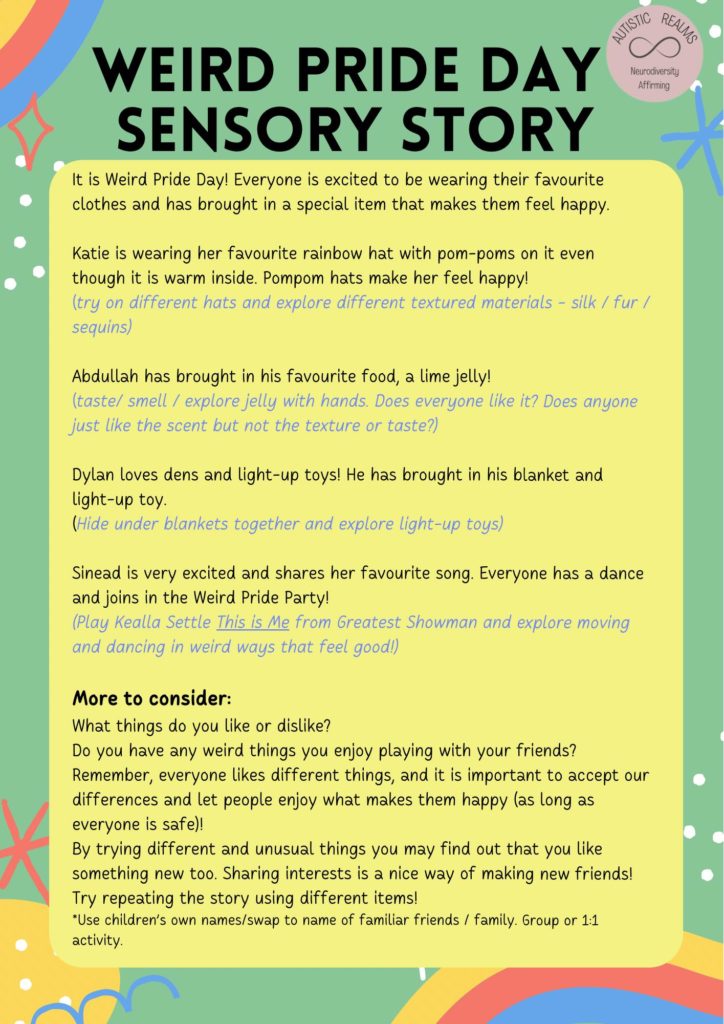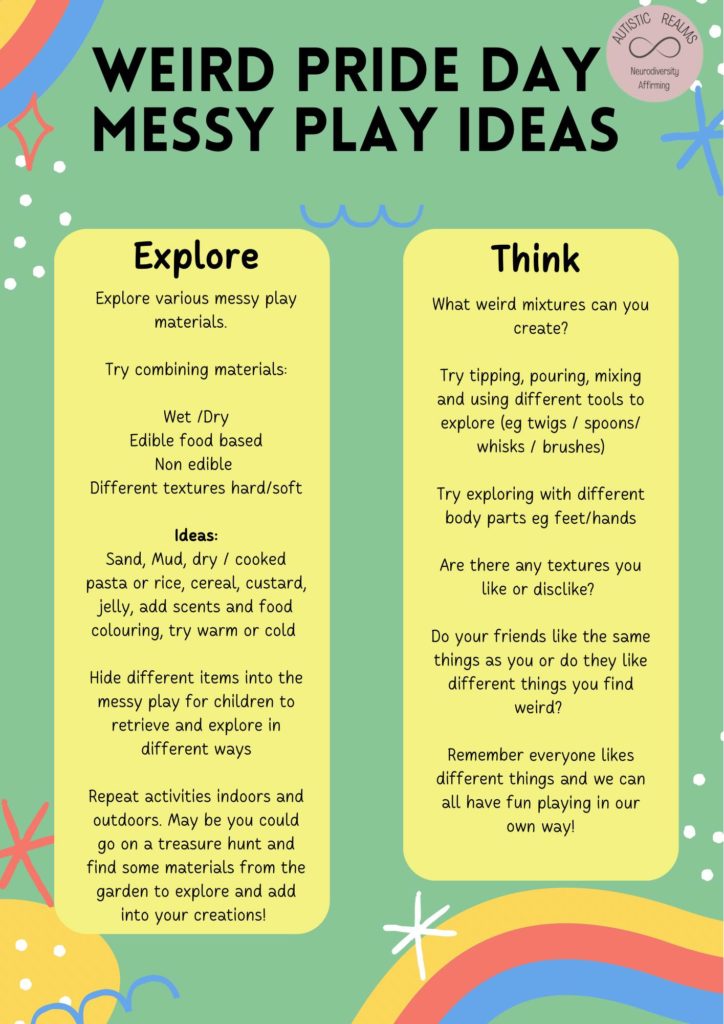Why Weird Pride?
School can be a difficult place for kids who stand out, for whatever reason.
Sometimes, children find it easy to pick on those who are seen as different. That could be because they look different, they talk differently, or their access needs are different. It is not natural or inevitable for people to hate or fear difference, but it is certainly common! In a society where conformity is often rewarded and diversity sometimes looked down on, children need to be taught to accept and embrace differences – especially their own.
“Many people need desperately to receive this message: ‘I feel and think much as you do, care about many of the things you care about, although most people do not care about them. You are not alone.”
– Kurt Vonnegut, Timequake
Weird Pride Day is a day for everyone to celebrate the things that make them stand out, especially the differences that people sometimes pick on as being ‘weird’ – whether or not they are happy to embrace ‘weird’ as a label for themselves.
In any school there will be people who are disabled, people from neurominorities, people who belong to gender and sexual minorities (although they might not know it yet), people from backgrounds that make it harder for them to fit in, and people who are passionate about things that others just don’t get. All of those people are liable to be seen as weird, and as long as that is assumed to be a bad thing, they will be bullied for it. Many children with so-called ‘invisible’ disabilities will have been bullied for their differences for years before they ever have a label for them, and not always just by kids.
A truly inclusive school must be one that teaches students and staff to accept and appreciate difference: to value diversity of all sorts. On Weird Pride Day, let your staff and pupils know that different ways of experiencing the world are valid, and welcome; that quirks are nothing to be ashamed of, as long as you’re not doing any harm; that everyone is happier when they are free to be themselves, even if it might strike other people as… a little odd.
Suggested Activities
Be wary of activities that risk leaving kids too exposed. It is great if they feel comfortable celebrating the things that make them weird, but for all of the reasons described above, it is not safe to push anyone to make others more aware of their weirdness! There is a danger of giving bullies ammunition, even as we work to reduce the power of their words and actions. This could be a safeguarding risk for some pupils, and even staff members need to be careful about what quirks they make people aware of.
With that said, some teachers might feel safe talking about some of the things that make them weird, and their experiences around that. One relatively safe way in to talking about weirdness might be passions – most people will have had the experience of other people being baffled by how enthusiastic they are about something… or how unenthusiastic.
You might like to focus on books, music and other media where difference and weird pride are major themes. There are a lot to choose from!
A small selection of books, with thanks to Kirsten Donaldson Wheal (links go to existing educational resources):
- Wild, by Emily Hughes
- Sweety, by Andrea Zuill
- Cloud Busting, by Malorie Blackman
- Phoebe and her Unicorn, by Dana Simpson
- A Kind of Spark, by Elle McNicoll
- Milli, Jack and the Dancing Cat, by Stephen Michael King
- Witch Week, by Diana Wynne Jones
- The Lightning Thief and other Percy Jackson books, by Rick Riordan
- Weirdo, by Tony Weaver, Jr.
Look at how other characters in a story react to someone who is seen as weird.
- Do they act like it’s a bad thing to be different from those around you?
- Does their attitude change over the course of the story?
- Do the ‘weird’ characters face barriers related to being seen as different?
- Are there any positives to the things that make them unusual?
You could encourage students to think about their own experiences of diversity. How do they respond when they meet someone who expresses themself very differently from them, or who sees things very differently? Have they ever been mean to someone because they were different? Is that ever okay?
What about weirdness among other animals? How do they feel about animals that are commonly seen as weird, like the platypus or the binturong?
Many people who have done extraordinary things were seen as weird in their day. They might have spent their days and nights practising a skill when other people their age were out partying, or obsessively investigated questions that didn’t seem important to most people. If Leonardo was in their class at school, would he be accepted? What about Frida Kahlo?
Do some people who are seen as weird face additional barriers? Is it easier to pursue ‘weird’ interests if you are white and male, for example?

Weird Pride Day Sensory Story by AUTISTIC REALMS – Neurodiversity Affirming


